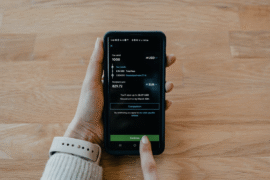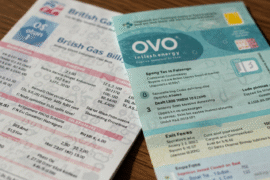This article may contain references to products or services from one or more of our advertisers or partners. We may receive compensation when you click on links to those products or services. Nonetheless, our opinions are our own.
The information presented in this article is accurate to the best of our knowledge at the time of publication. However, information is subject to change, and no guarantees are made about the continued accuracy or completeness of this content after its publication date.
- Accessing Government Financial Assistance in 2025
- Categories of Available Public Assistance
- Preparing to Apply for Financial Aid
- Maximizing Grant and Subsidy Opportunities
- Leveraging Tax Credits to Boost Income
- Structuring a Budget Using Public Funds
- Financial Literacy Resources for Ongoing Improvement
- Common Questions About Accessing Government Aid
- Recommended Reads
Accessing Government Financial Assistance in 2025
Government-funded financial support can take many forms, ranging from direct subsidies to indirect tax relief and community-specific grants. In 2025, several federal and state-level programs are designed to ease financial hardship or promote economic mobility across diverse income groups. Knowing which opportunities apply to your situation can significantly influence your financial well-being.
Whether seeking help with basic needs, continuing education, or starting a business, public funds may be available to reduce out-of-pocket costs and provide short or long-term relief.
Categories of Available Public Assistance
Public programs typically fall into several service areas. Each has its own eligibility requirements and application process. A thoughtful review of these can help identify which resources best match your circumstances.
Housing Support
Federal and state agencies offer rental subsidies and mortgage assistance to eligible individuals and families. The Housing Choice Voucher Program, previously known as Section 8, remains among the most well-known. It helps qualified participants reduce monthly rent burdens through direct subsidies to landlords.
Some local governments also provide limited-time assistance for utility bills, emergency housing, and first-time homebuyer programs.
Healthcare Subsidies
Income-based healthcare support continues through the Health Insurance Marketplace. Subsidies, officially referred to as premium tax credits, may reduce monthly premiums for qualified applicants. State Medicaid expansions may provide access to no-cost or low-cost health services for qualifying individuals and families.
Education Grants
Grants for undergraduate education, such as Pell Grants, are available through the U.S. Department of Education. Eligibility depends on income, enrollment status, and academic progress. Some states offer merit-based or need-based aid programs that complement federal grants.
Nutrition and Food Security
The Supplemental Nutrition Assistance Program (SNAP) provides monthly benefits to households with low incomes. Benefits are distributed via an Electronic Benefit Transfer (EBT) card and can be used at approved grocery retailers. Eligibility depends on household income, expenses, and family size.
Preparing to Apply for Financial Aid
Applicants often find that organizing documentation in advance simplifies the process. Although requirements vary by program, certain materials are commonly requested across agencies:
- Government-issued identification
- Social Security numbers for all household members
- Income documentation (pay stubs, tax returns, benefit letters)
- Proof of residence
- Household expense summaries
Each program may have a separate application, but some state agencies offer integrated systems that allow simultaneous applications for multiple benefits.
Suggested Application Timeline and Tracking
Use a planning system to manage deadlines and follow-ups. The following table provides a basic structure:
Voted "Best Overall Budgeting App" by Forbes and WSJ
Monarch Money helps you budget, track spending, set goals, and plan your financial future—all in one app.
Get 50% OFF your first year with code MONARCHVIP
Maximizing Grant and Subsidy Opportunities

Many public grants remain underutilized each year due to low awareness or confusion about eligibility. By targeting programs aligned with your personal or financial goals, you can improve your chances of accessing untapped resources.
Common Categories and Matching Programs
| Objective | Examples of Public Support |
|---|---|
| Higher Education | Pell Grants, State Opportunity Scholarships |
| Affordable Housing | Housing Choice Voucher Program, Local Subsidized Housing Funds |
| Business Development | Small Business Innovation Research (SBIR), State Development Grants |
Community organizations and nonprofit financial counselors can also offer insights into local programs that may not be widely promoted.
Leveraging Tax Credits to Boost Income
Certain tax credits continue to provide substantial financial returns to eligible individuals and households. These programs are structured to lower tax liability or provide direct refunds.
Major Federal Tax Credits for 2025
- Earned Income Tax Credit (EITC): Designed for working individuals with low to moderate income, especially those with children.
- Child Tax Credit: Offers financial relief for qualifying families with dependents under the age of 17.
- American Opportunity Tax Credit (AOTC): Offers up to $2,500 annually for eligible college students in their first four years of higher education.
| Tax Credit | General Requirements |
|---|---|
| EITC | Income thresholds, filing status, qualifying children |
| Child Tax Credit | Age of dependents, earned income limits |
| AOTC | Enrollment in eligible institutions, income under set limits |
Filing early and using reliable tax preparation services may help ensure that all eligible credits are properly claimed.
Structuring a Budget Using Public Funds
Once financial assistance is received, incorporating those funds into a structured monthly budget can prevent overuse and help support long-term planning. Programs that assist with fixed expenses free up income for debt repayment or savings.
Example Budget Categories Influenced by Aid
| Program Type | Monthly Value Range | Typical Use |
|---|---|---|
| SNAP Benefits | Up to $250 per person | Food and groceries |
| Rental Subsidy | Up to $1,500 per household | Rent and housing costs |
| Utility Assistance | Seasonal, varies by region | Energy and water bills |
| Educational Grants | Variable by institution | Tuition, books, transportation |
Planning around recurring benefit cycles—monthly or quarterly—can improve budgeting accuracy and help build financial stability.
Financial Literacy Resources for Ongoing Improvement
Public access to financial education tools has grown steadily. Free, reputable resources can help individuals understand budgeting, credit management, and long-term planning without cost.
Examples of Low-Cost or Free Educational Tools
- University-led open courses on personal finance
- Audio programs covering debt reduction and savings strategies
- Instructional videos produced by accredited financial educators
- Government-hosted platforms explaining programs in plain language
To stay organized and track learning progress, some may find it helpful to create a personal development table:
| Resource Type | Time Commitment (minutes) | Completion Status |
|---|---|---|
| Course on Household Budgeting | 30 | In Progress |
| Podcast on Federal Aid Programs | 45 | Completed |
| Video on Tax Credit Filing | 20 | Planned |
Consistent engagement with educational material can enhance both program participation and overall financial decision-making.
Common Questions About Accessing Government Aid
Which types of assistance are available in 2025?
Support is offered in various forms, including rental subsidies, healthcare subsidies, food security programs, educational grants, and small business funding. Each is administered through different agencies and may vary based on residency and income.
Can multiple benefits be received at the same time?
Yes. Many individuals qualify for more than one form of assistance. For example, someone may receive food benefits and also qualify for a health subsidy. However, each program has its own rules and may require applicants to report overlapping benefits.
How long does it take to receive assistance?
Processing times vary. Food and emergency housing aid may be delivered within weeks, while educational grants or housing vouchers often involve longer timelines. Timely submission and document readiness can expedite approval.
What if an application is denied?
Denials are not final. Most programs include an appeals process. Individuals may request a review, submit additional documentation, or seek help from advocacy groups or legal aid organizations.
Where can trustworthy program information be found?
Reliable program descriptions, forms, and eligibility criteria can be found on official federal or state websites. Local government offices and nonprofit groups also provide printed materials or one-on-one assistance.

Reviewed and edited by Albert Fang.
See a typo or want to suggest an edit/revision to the content? Use the contact us form to provide feedback.
At FangWallet, we value editorial integrity and open collaboration in curating quality content for readers to enjoy. Much appreciated for the assist.
Did you like our article and find it insightful? We encourage sharing the article link with family and friends to benefit as well - better yet, sharing on social media. Thank you for the support! 🍉
Article Title: How to Get Free Money From the Government in 2025
https://fangwallet.com/2025/06/06/government-financial-assistance/The FangWallet Promise
FangWallet is an editorially independent resource - founded on breaking down challenging financial concepts for anyone to understand since 2014. While we adhere to editorial integrity, note that this post may contain references to products from our partners.
The FangWallet promise is always to have your best interest in mind and be transparent and honest about the financial picture.
Become an Insider

Subscribe to get a free daily budget planner printable to help get your money on track!
Make passive money the right way. No spam.
Editorial Disclaimer: The editorial content on this page is not provided by any of the companies mentioned. The opinions expressed here are the author's alone.
The content of this website is for informational purposes only and does not represent investment advice, or an offer or solicitation to buy or sell any security, investment, or product. Investors are encouraged to do their own due diligence, and, if necessary, consult professional advising before making any investment decisions. Investing involves a high degree of risk, and financial losses may occur including the potential loss of principal.
Source Citation References:
+ Inspo
There are no additional citations or references to note for this article at this time.












































